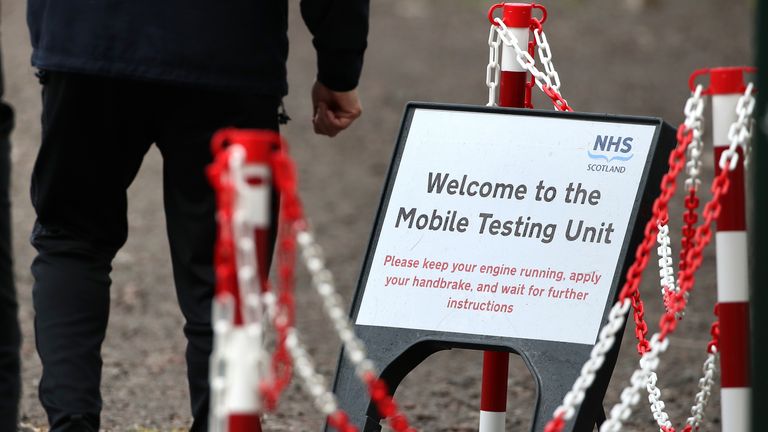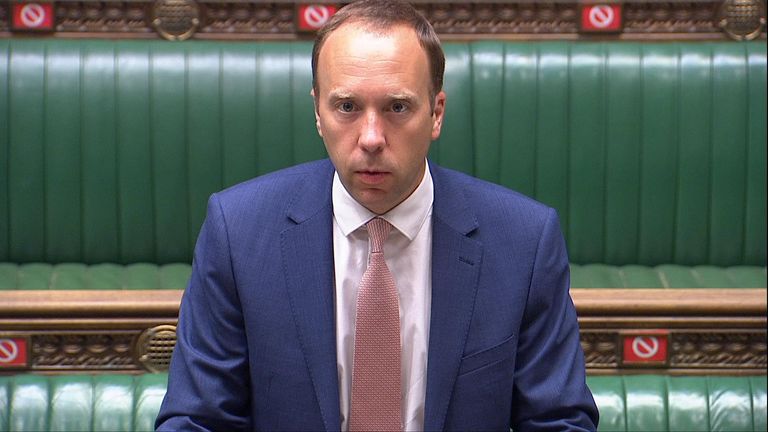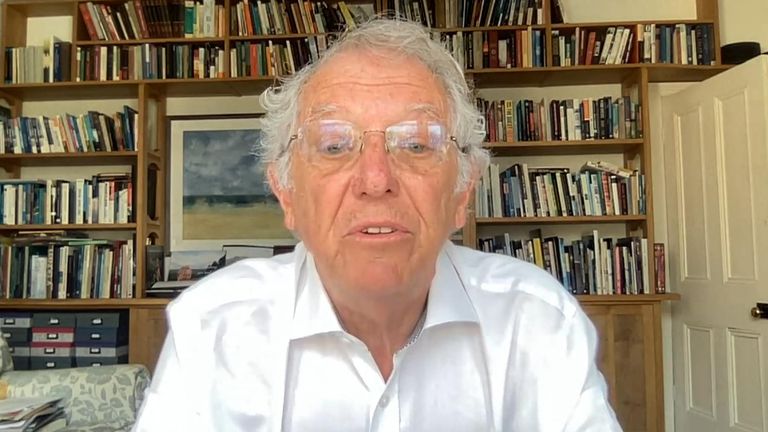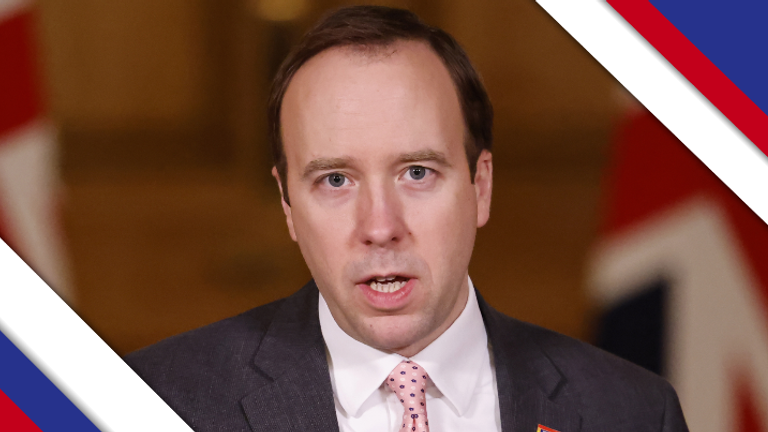COVID-19: Greater Manchester and Lancashire residents told to minimise travel as variant cases rise
Greater Manchester and Lancashire are to receive a “strengthened package of support” to tackle a rise in the Delta coronavirus variant, Matt Hancock has announced – with residents told to minimise travel.
Addressing the Commons, the health secretary said: “I can tell the House that today, working with local authorities, we are providing a strengthened package of support based on what is working in Bolton to help Greater Manchester and Lancashire tackle the rise in the Delta variant that we are seeing there.”
Live COVID updates from the UK and around the world
On the government’s website, the “minimise travel” page has also been updated to include areas in Greater Manchester and Lancashire.
It states: “In the areas listed above, wherever possible, you should try to meet outside rather than inside where possible, keep two metres apart from people that you don’t live with (unless you have formed a support bubble with them) – this includes friends and family you don’t live with, minimise travel in and out of affected areas.”
The support package announced on Tuesday includes:
• Rapid response teams
• Extra COVID-19 testing
• Military support
• Supervised in-school testing
Mr Hancock told the Commons: “I want to encourage everyone in Manchester and Lancashire to get the tests on offer.
“We know that this approach can work. We’ve seen it work in south London and in Bolton in stopping a rise in the number of cases and this is the next stage of tackling the pandemic in Manchester and in Lancashire.
“And of course, it is vital that people in these areas as everywhere else come forward and get the jab as soon as they are eligible because that is our way out of this pandemic together.”
People aged between 25 and 29 are now eligible to book their COVID vaccine, although there have been some problems with the NHS website this morning.
The Department for Health and Social Care (DHSC) said the new interventions follow extensive COVID-19 surveillance which has detected a number of cases of the Delta variant in these communities.
Other areas where the Delta variant (first identified in India) is spreading include Bedford, Blackburn with Darwen, Kirklees, Leicester, Hounslow and North Tyneside, the government has said.
As with residents of Greater Manchester and Lancashire, people in the areas above are advised by the government to try and meet outside, keep two metres apart, and minimise travel.
Individuals are also advised to continue to work from home if they can and to get tested twice a week.
DHSC said: “As part of the package, there is extra guidance on steps people can take, such as minimising travel in and out of the affected areas, to keep their loved ones and their communities safe.”
The department added that wastewater will also be sampled and enhanced genomic sequencing will take place in the COVID hotspots.
Mr Hancock announced the update in the Commons after briefing the relevant MPs on Tuesday morning.
It comes less than two weeks before 21 June, the government’s proposed date for the next relaxation of restrictions in England.
Responding to the announcement made by Mr Hancock, the PM’s official spokesman said: “We want to provide the package of support that has been effective in Bolton to a wider area to tackle the cases of the Delta variant.”
At the weekend, Mr Hancock told Sky News the Delta variant of coronavirus makes the decision about lifting lockdown restrictions on 21 June “more difficult”.
The variant is 40% more transmissible than the Alpha strain first detected in Kent late last year, the health secretary said, leaving the easing of social distancing in the balance for the original target date.
Chief executive of the UK Health Security Agency Dr Jenny Harries said the government “will not hesitate to take additional action whenever necessary”.
Dr Harries added: “Early research shows that vaccines provide strong protection against the new variants, with effectiveness against symptomatic disease from the Delta (B.1.617.2) variant is similar after two doses compared to the Alpha variant (B.1.1.7), and even higher levels of effectiveness are expected against hospitalisations and death.
“The government and its world-leading scientists are closely monitoring the evolving situation and the rates of variants, and the government will not hesitate to take additional action whenever necessary.”
It comes as government figures released on Tuesday show nearly a third of secondary school pupils in Bolton were absent for COVID-related reasons during the week before half-term.
In the North West, COVID-related pupil absence was 4% on 27 May, compared to the national average of 1.8%, according to the statistics.
This was predominantly due to an increase in cases of coronavirus in Bolton and Blackburn with Darwen, the Department for Education (DfE) analysis said.
Source: Read Full Article




